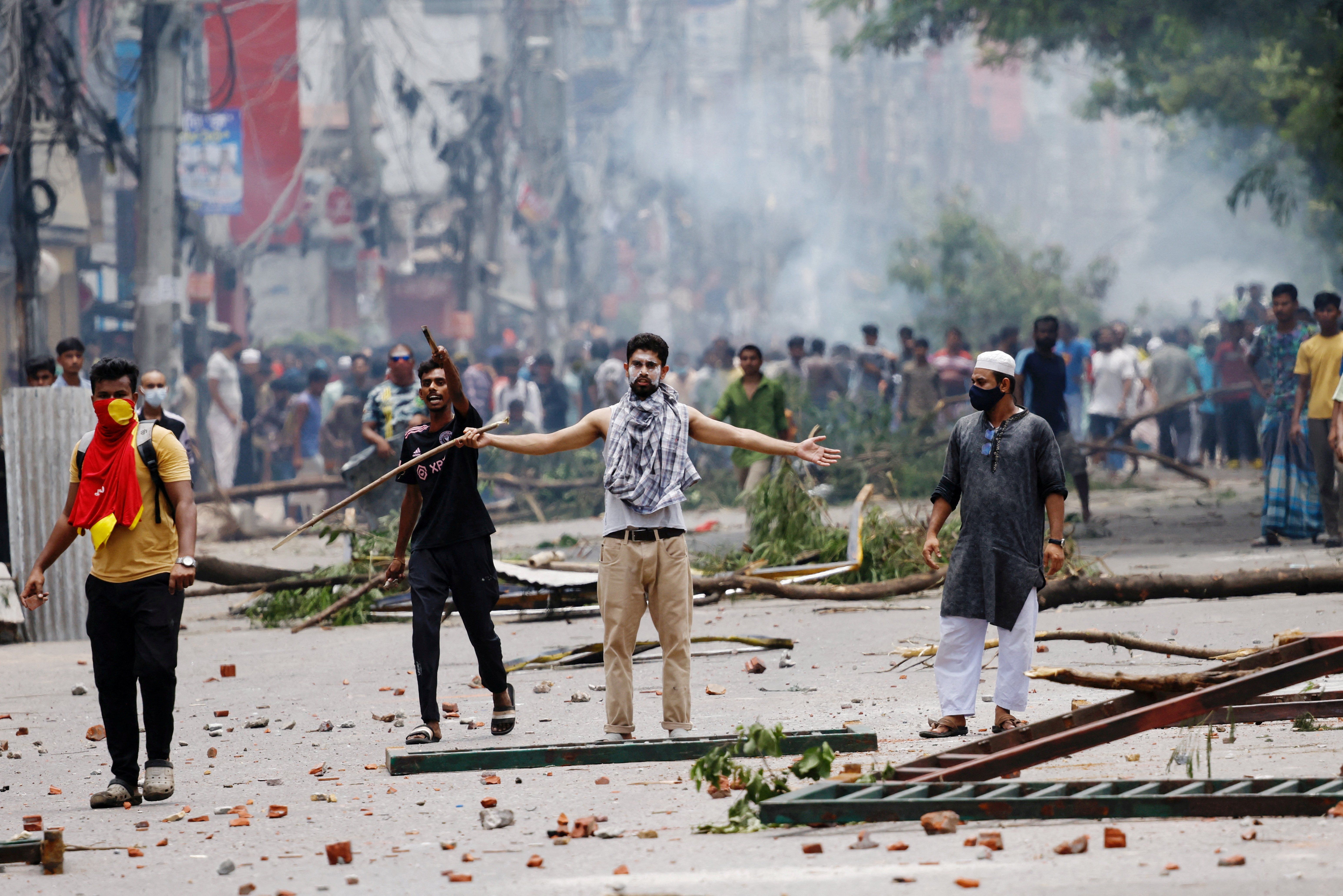Bangladesh’s Supreme Court on Sunday scrapped most government job quotas after two weeks of nationwide student-led protests left 139 people dead and more than 400 injured.
The back story:For decades, a quota system reserved 56% of government jobs for special groups. Thirty percent went to descendants of those who fought for independence against Pakistan in 1971. The rest were for women, minorities, and poor districts.
Prime Minister Sheikh Hasina ended that in 2018 in response to protests, but in June the High Court reinstated the fighters’ relatives quota, provoking fresh unrest and a police crackdown. Government jobs are coveted in a country of high youth unemployment, stagnant private-sector employment, and stinging inflation.
The court’s new ruling caps the job quota at 7%.
Hasina has held a tight grip on power since 2009. In January, she won an election that was boycotted by the opposition over concerns that she was rigging it.
Observers say the protests are about more than quotas. “They’re protesting against the repressive nature of the state,” said Mubashar Hasan, a Bangladesh expert at the University of Oslo. “The students are in fact calling [Hasina] a dictator.”
Will the protesters now look to press further against Hasina? Student leaders have already said they’ll stay in the streets until the government releases jailed students and restores internet service.
